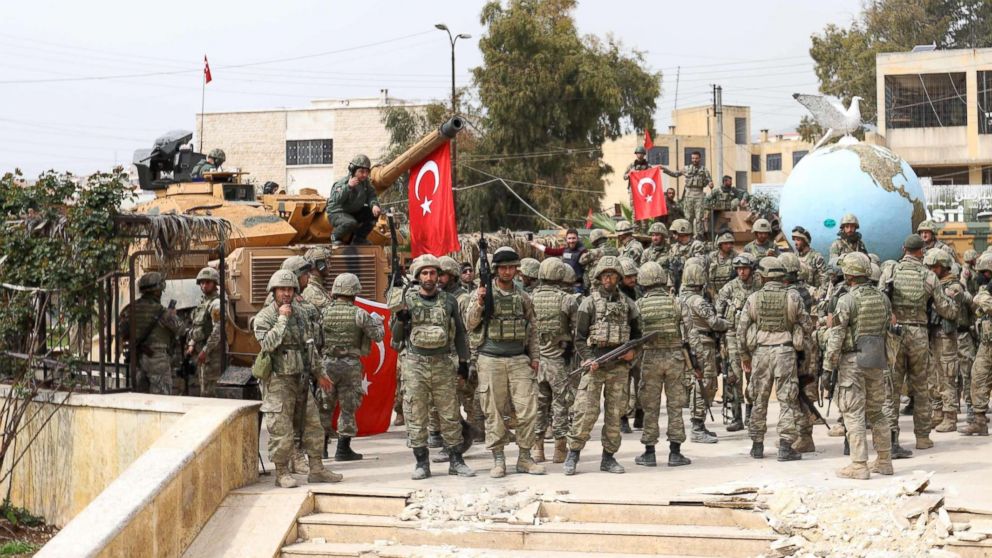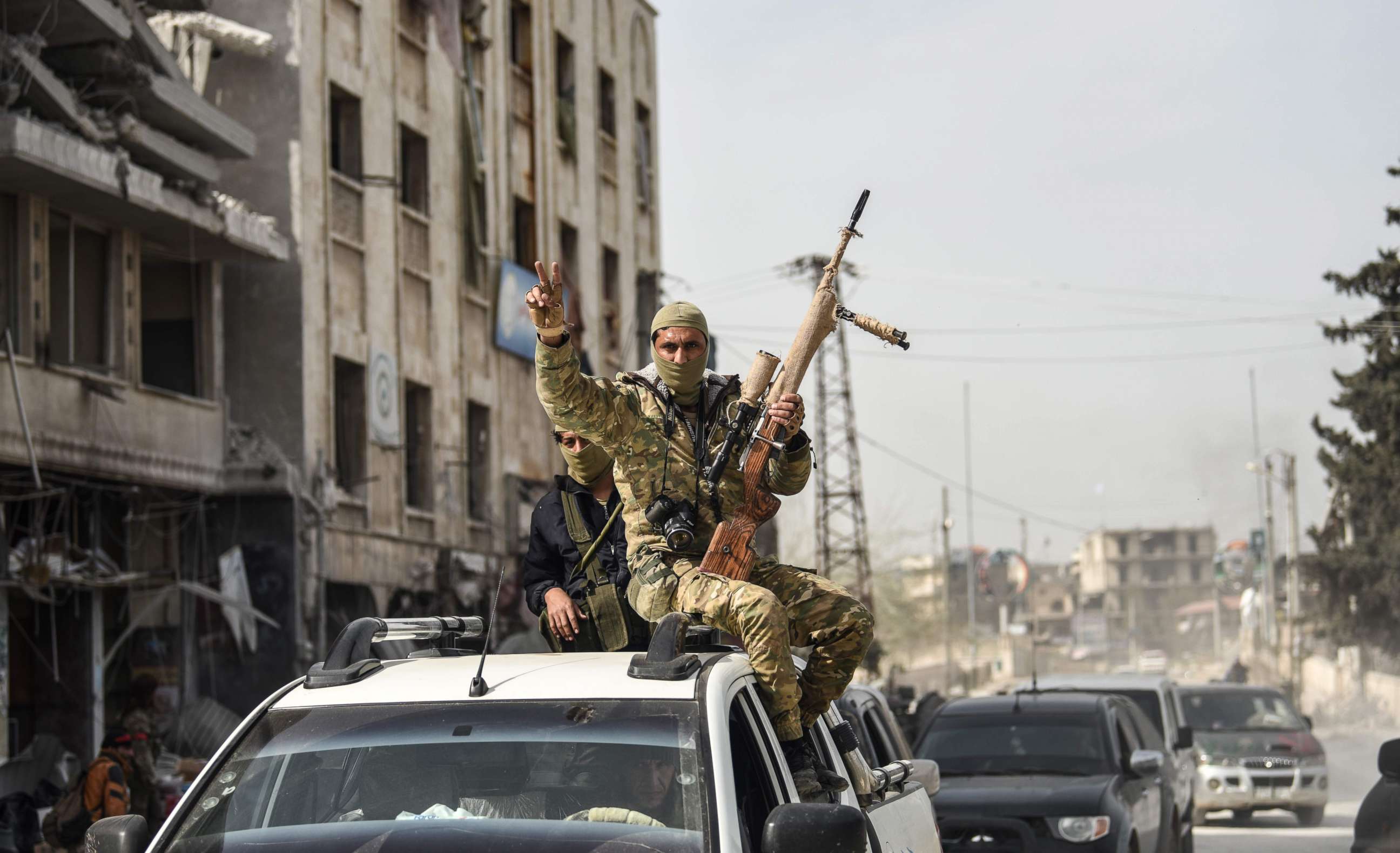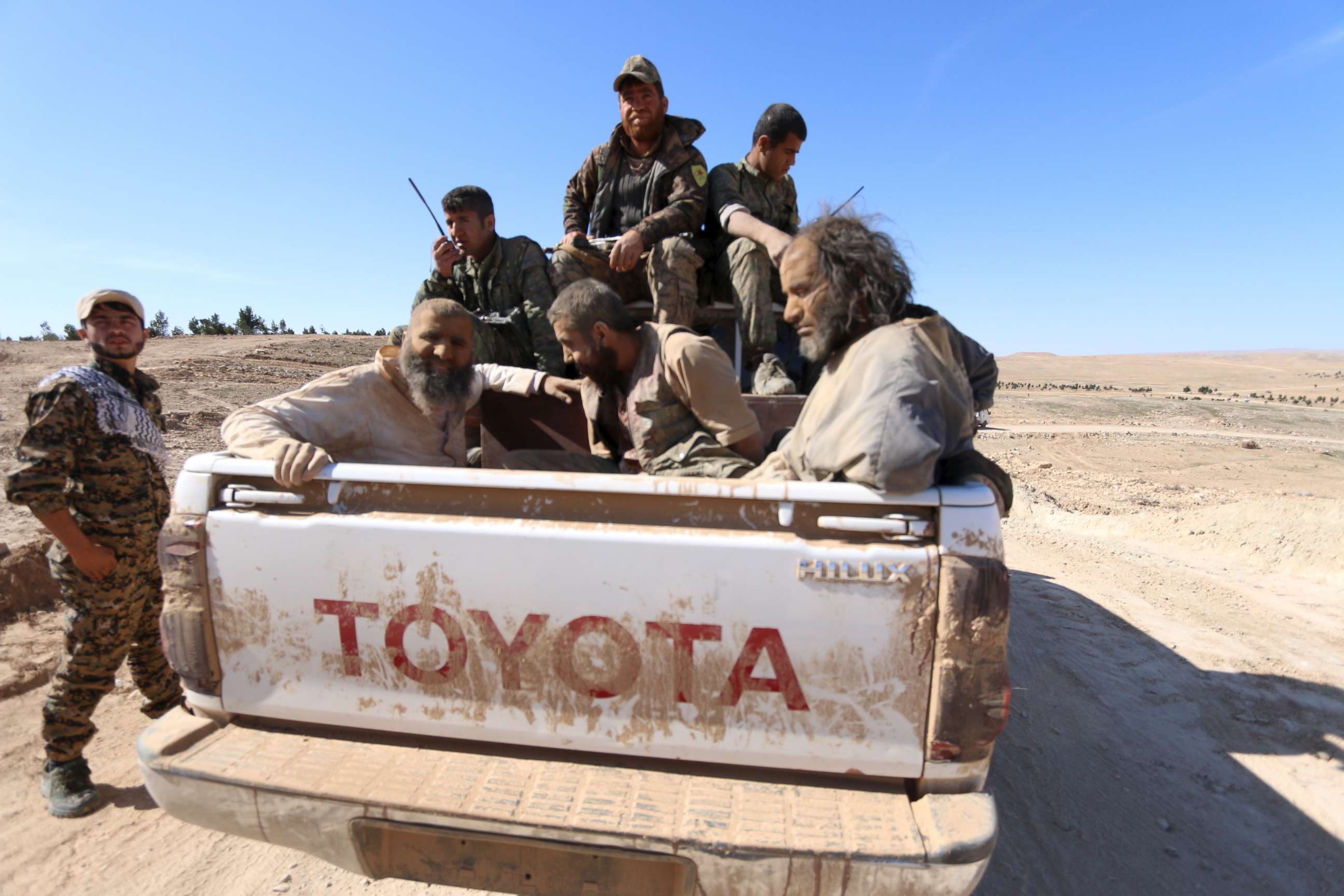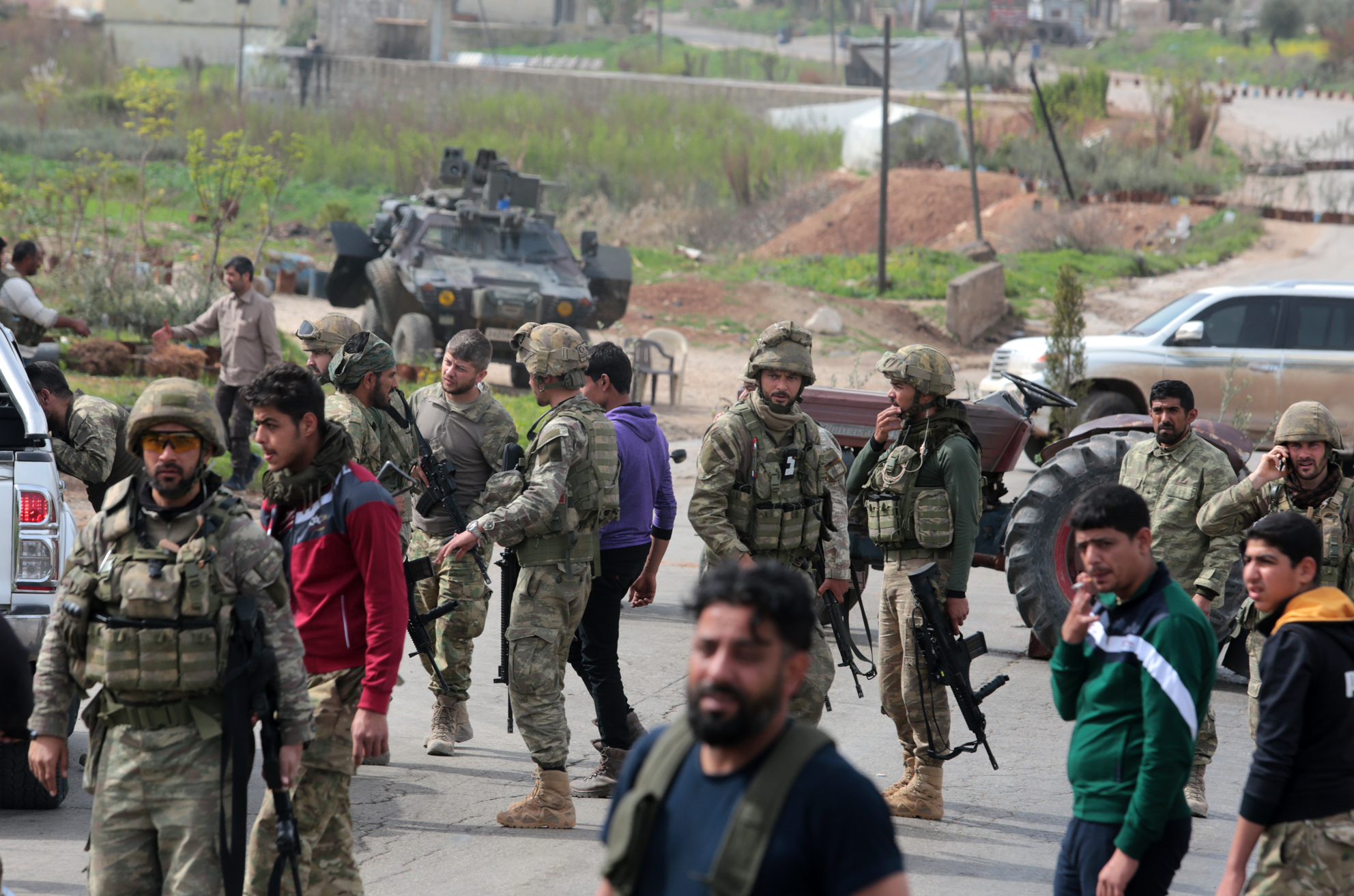Could ISIS fight in Syria be at risk if Turkey fights US-backed Kurds?
Turkish victory in Afrin raises worries of broadening conflict against Kurds

Is northern Syria about to blow up again with a battle between Turkey and Syrian Kurdish rebels backed by the United States?
And could that fight between America's NATO ally and a U.S.-backed partner spell the end of the fight against ISIS in Syria — even as the terror group is on its last legs?
Those questions have American officials concerned following Turkey's recent takeover of the Kurdish held city of Afrin in northwestern Syria.
They're even more urgent after Turkish President Erdogan suggested Turkey might expand its military operations against Syrian Kurds elsewhere into northern Syria and possibly into Iraq.
Can you say “powder keg?"
Caught in the middle would be the U.S. military's fight against ISIS in Syria that has been enabled by the Syrian Democratic Forces (SDF).

Half of that group's 50,000 fighters belong to the YPG, a Syrian Kurdish rebel group that Turkey says is the Syrian affiliate of the PKK, a terror group that has carried out attacks inside Turkey for decades.
Turkey has complained repeatedly to the United States that by providing arms and training to the SDF, the U.S. is supporting the YPG and terror attacks in Turkey.
The fight for Afrin has already had a negative impact in the SDF's fight against the last remaining pocket of ISIS fighters in eastern Syria. An offensive close to the border with Iraq has been stalled for weeks as more than 1,500 highly trained Kurdish SDF fighters and commanders headed westward to fight the Turks in Afrin.
If Turkey carries out its threat to push Kurdish fighters out of other areas in northern Syria it's possible that even more SDF fighters could leave the fight against ISIS.
The biggest concerns are about Manbij,the city 90 miles east of Afrin, where for almost a year American troops have kept Turkish-supported fighters and Kurdish troops from fighting each other.

Michael O'Hanlon, with the Brookings Institution, thinks a broader Turkish operation into northern Syria strictly to reduce the amount of territory controlled by the Kurds would not only jeopardize military gains against ISIS, but also give the Assad regime an unintended boost.
"They’re perhaps giving Assad a victory he wouldn’t achieve in those areas himself," said O'Hanlon. "Because their ultimate end game is probably not going to be to occupy that part of Syria forever but to hand it back to the central government, and I would worry about that."
O'Hanlon also believes that SDF fighters leaving the fight against ISIS could also open up possibilities for Iranian-backed groups and fighters in Syria to gain territory vacated by Kurdish fighters.
"I don’t like the trendlines," said O'Hanlon. "I think it's time for the Trump administration to have a little bigger broader view of the end game in Syria, as well, and work out some agreement with Turkey."
And that could be a difficult starting point since O'Hanlon believes Turkey wants to see the Kurds in Syria as weak as possible, while the U.S. likely supports a Kurdish force strong enough to prevent a resurgence of ISIS in northern and eastern Syria.

Over the weekend Deputy Secretary of State John Sullivan reached out to his Turkish to discuss the situation in northern Syria, according to a senior State Department official.
Getting both the U.S. and Turkey to agree is already proving difficult.
On Monday, a State Department statement expressed concerns about the humanitarian situation in Afrin and that the fighting there had "provided an opportunity for ISIS to begin reconstituting in some areas."
Turkish Deputy Prime Minister Bekir Bozdag criticized that statement on Tuesday, posting on Twitter that it showed "the U.S. still cannot or does not want to comprehend the reason, purpose and nature of Operation Olive Branch.”
Bozdaq pushed back that the Turkish military operation in Afrin was “not against civilians or Kurds but against terrorists” and that no civilians had been hurt during the Turkish-led offensive.
Later, State Department spokesperson Heather Nauert told reporters that the U.S. and Turkey continue talking and have not reached any agreement on the way forward in Manbij or other cities.
ABC's Conor Finnegan contributed to this report.




